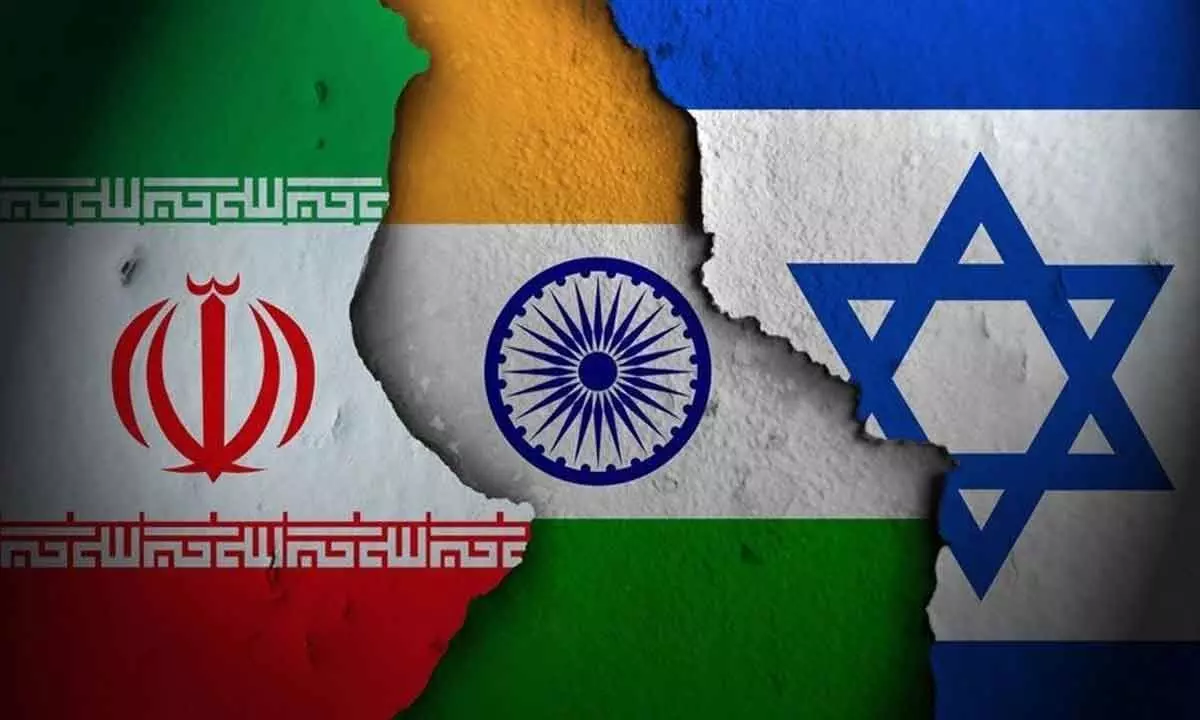Global powers engage in geopolitical tightrope to limit intl conflict
Amidst escalating tensions in West Asia, nations grapple with geopolitical complexities. In an interconnected world, diplomatic appeals and strategic limitations are critical to preventing global conflict
image for illustrative purpose

What distinguishes the current global unrest from World Wars in 1914 and 1939 is the absence of clear red (enemy) and blue (friendly) forces. Be it the ongoing Russia-Ukraine war, the Israeli-Hamas conflict, or the latest flashpoint being Iran and Israel. In today's day and age, the international community is not divided into two groups of them vs us—while there are opposing forces, within them are nations that seek strategic alliances and neutrality based on their geopolitical and strategic interests
It may not be World War III yet. Still, the world is at war, given its geopolitical doctrines, which are wrapped in layers of dilemmas emanating from long-term and short-term interests, regional groupings, and strategic alliances. However, these intertwined, shared and inconsistent interests have prevented a major global conflict so far, but will it hold?
Last week, the Iran-Israel standoff was a classic example of how geopolitical tensions can unwittingly drag nations and their allies into conflict. However, the bright spot is that allies on both sides are pushing the two arch-rivals of West Asia to "draw a line" to the conflict to restore sanity and limit further escalation.
Global leaders, geopolitical think tanks, and businesses very well understand that we live in an interconnected world, and every conflict will come back to bite. Thus, no one is immune to the consequences of full-blown war.
What distinguishes the current global unrest from World Wars in 1914 and 1939 is the absence of clear red (enemy) and blue (friendly) forces. Be it the ongoing Russia-Ukraine war, the Israeli-Hamas conflict, or the latest flashpoint being Iran and Israel. In today's day and age, the international community is not divided into two groups of them vs us—while there are opposing forces, within them are nations that seek strategic alliances and neutrality based on their geopolitical and strategic interests.
In this century, the world has repeatedly witnessed the doctrine of keeping the enemy vulnerable, be it militarily, economically, or geopolitically, instead of pushing for complete annihilation, as it was during the world wars.
Thus, nations and their allies engage in attacks and counter-attacks using unconventional means, such as cyber-attacks, non-state actors (terrorists), and limited military response, to demonstrate strength & national pride to their constituencies.
Iran launched around 300 drones, cruise, and ballistic missiles from its own territory towards Israel, which were intercepted by Israel's superior air defence systems, aided by allies. However, immediately after the thawing Iranian attack, the US urged Israeli Prime Minister Benjamin Netanyahu to exercise restraint. The argument put forward is that Tel Aviv had emerged victorious by preventing the attack from achieving its objectives. In contrast, Iranian Supreme Leader Ayatollah Ali Khamenei asserted that his forces restored 'the sense of deterrence lost when Israel attacked the compound in Damascus,' thus revitalizing Iranian pride. Iran also stated that it had achieved its objective, hinting it didn't want to escalate the conflict further.
Netanyahu will decide the next move, and his war cabinet has already met twice in the last 24 hours amidst criticism from opposition leader Yair Lapid, who is accusing the Prime minister of "total loss of Israeli deterrence" in the wake of an unprecedented first direct attack by Iran from its soil and call for "strategic patience" by allies. There is also heat from Hard-right members from within the Israeli government who are pushing for "an immediate and forceful response."
For now, the Jersuslum has maintained it will respond 'in the manner and at the time of our choosing.'
Iran's leadership must also be hoping that Israel will draw a line in the latest standoff, but it clearly doesn't believe that will be the case. Thus, amid the tension, Iranian President Ebrahim Raisi has opted to visit Pakistan to explore, among other things, security cooperation - to remind you that in Jan this year, both the Islamic neighbours had targeted each other sites using drones and precision strikes - such are the geopolitical compulsions in today's world.
Though Bharat is seen as slanted towards Israel, its relationship with Tehran is deep-rooted and steady. Given its commercial and strategic interest in the region, New Delhi wants to see a quick end to the conflict. India's External Affairs Minister S Jaishankar highlighted the risks posed to regional peace if the current conflict escalates. Geopolitical neutrality is the name of the game for countries like Bharat.
Even as a nervous world awaits any sign of further escalation, Channel 12 News reported that US President Joe Biden himself urged Prime Minister Benjamin Netanyahu to "think carefully and strategically." While reaffirming ‘ironclad’ support for Israel against their ‘common enemy,’ he also cautioned that Washington would not offer military support for any retaliation against Iran. Such are the geopolitical divergences in an interconnected world.
Global powers and nations are engaged in a war of contradictions, where governments and their leaders want their enemies down but not out. Thus, appeals to "draw a line" and limit conflicts from going global will be the norm.
(The author is Founder of My Startup TV)

